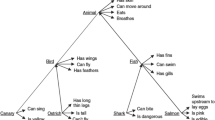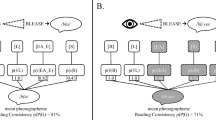Abstract
Word sense disambiguation assumes word senses. Withinthe lexicography and linguistics literature, they areknown to bevery slippery entities. The first part of the paperlooks at problemswith existing accounts of ‘word sense’ and describesthe various kinds of ways in which a word's meaning candeviate from its coremeaning. An analysis is presented in which wordsenses areabstractions from clusters of corpus citations, inaccordance withcurrent lexicographic practice. The corpus citations,not the wordsenses, are the basic objects in the ontology. Thecorpus citationswill be clustered into senses according to thepurposes of whoever or whatever does the clustering. In theabsence of suchpurposes, word senses do not exist.
Word sense disambiguation also needs a set of wordsenses todisambiguate between. In most recent work, the sethas been takenfrom a general-purpose lexical resource, with theassumption that thelexical resource describes the word senses ofEnglish/French/...,between which NLP applications will need todisambiguate. Theimplication of the first part of the paper is, bycontrast, that wordsenses exist only relative to a task. Thefinal part of the paper pursues this, exploring, bymeans of asurvey, whether and how word sense ambiguity is infact a problem forcurrent NLP applications.
Similar content being viewed by others
References
Apresjan, Juri D. "Regular Polysemy". Linguistics, 142 (1974), 5–32.
Atkins, Sue. "Tools for Computer-aided Lexicography: The Hector Project". In Papers in Computational Lexicography: COMPLEX '93, Budapest, 1993.
Ayto, John R. "On Specifying Meaning". In Lexicography: Principles and Practice. Ed. R. R. K. Hartmann, London: Academic Press, 1983, pp. 89–98.
Béjoint, Henri. Tradition and Innovation in Modern English Dictionaries. Oxford: OUP, 1994.
Boitet, Christian. Lecture Series Meaning and Understanding in MT, Prague Summer School, July, 1990.
Briscoe, Edward J., Ann A. Copestake and Branimir K. Boguraev. "Enjoy the Paper: Lexical Semantics via Lexicology". In COLING 90, volume 2, Helsinki, 1990, pp. 42–47.
Brown, Peter, Stephen Della Pietra, Vincent J. Della Pietra and Robert L. Mercer. "Word Sense Disambiguation Using Statistical Methods". In Annual Meeting of the Association of Computational Linguistics. Berkeley, California, 1991.
CIDE. Cambridge International Dictionary of English. Cambridge, England: CUP, 1995.
Clear, Jeremy. "I Can't See the Sense in a Large Corpus". In Papers in Computational Lexicography: COMPLEX '94.Ed. Ferenc Kiefer, Gabor Kiss and Julia Pajzs, Budapest, 1994, pp. 33–48.
COBUILD. The Collins COBUILD English Language Dictionary. 2nd Edition.Ed. John McH. Sinclair et al., London, 1995.
Copestake, Ann A. and Edward J. Briscoe. "Semi-productive Polysemy and Sense Extension". Journal of Semantics (1995).
Corpus Bench. CorpusBench Manual. Copenhagen, Denmark: Textware A/S, 1993.
Cottrell, Garrison W. A Connectionist Approach to Word Sense Disambiguation. London: Pitman, 1989.
Cruse, Alan. "Polysemy and Related Phenomena from a Cognitive Linguistic Viewpoint". In Computational Lexical Semantics.Ed. Patrick St. Dizier and Evelyne Viegas, Cambridge, England: CUP, 1995, pp. 33–49.
Cruse, D. A. Lexical Semantics. Cambridge, England: CUP, 1996.
Dolan, William B. "Word Sense Ambiguation: Clustering Related Senses". In COLING 94, Tokyo, 1994.
Fillmore, Charles. Keynote lecture, British Assn. Applied Linguistics conference, Exeter, September, 1988.
Fillmore, Charles J. and Beryl T. Atkins. "Towards a Frame-based Lexicon: the Semantics of RISK and its Neighbours". In Frames, Fields and Contrasts. Ed. Adrienne Lehrer and Eva Kittay, New Jersey: Lawrence Erlbaum, 1992, pp. 75–102
Gale, William, Kenneth Church and David Yarowsky. "Estimating Upper and Lower Bounds on the Performance of Word-sense Disambiguation Programs". In Proceedings, 30th ACL, 1992, pp. 249–256.
Gale, William, Kenneth Church and David Yarowsky. "A Method for Disambiguating Word Senses in a Large Corpus". Computers and the Humanities, 26(1-2) (1993), 415–439.
Geeraerts, Dirk. "The Lexicographical Treatment of Prototypical Polysemy". In Meanings and Prototypes: Studies in Linguistic Classification. Ed. Savas L. Tsohatzidis, London: Routledge, 1990, pp. 195–210.
Geeraerts, Dirk. "Vagueness's Puzzles, Polysemy's Vagueness". Cognitive Linguistics, 4(3) (1993), 223–272.
Guthrie, Joe A., Louise Guthrie, Yorick Wilks and Homa Aidinejad. "Subject-dependent Co-occurrence and Word Sense Disambiguation". In Proc. 29th Annual Meeting of the Association for Computational Linguistics, Berkeley, 1991.
Guthrie, Louise, Brian M. Slator, Yorick Wilks and Rebecca Bruce. "Is there Content in Empty Heads?" In COLING 90, volume 3, Helsinki, 1990, pp. 138–143.
Hanks, Patrick. "Linguistic Norms and Pragmatic Exploitations or, Why Lexicographers Need Prototype Theory, and Vice Versa". In Papers in Computational Lexicography: COMPLEX '94. Ed. Ferenc Kiefer, Gabor Kiss and Julia Pajzs, Budapest, 1994, pp. 89–113.
Hearst, Marti A. "Noun Homograph Disambiguation Using Local Context in Large Text Corpora". In Using Corpora: Proc. Seventh Ann. Conf. of the UW Centre for the New OED,Waterloo, Canada, 1991, pp. 1–22.
Jensen, Karen and Jean-Louis Binot. "Disambiguating Prepositional Phrase Attachment by Using On-line Dictionary Definitions". Computational Linguistics, 13 (1987), 251–260.
Jorgensen, Julia C. "The Psychological Reality of Word Senses". Journal of Psycholinguistic Research, 19(3) (1990), 167–190.
Kilgarriff, Adam. Polysemy. Ph.D. thesis, University of Sussex, CSRP 261, School of Cognitive and Computing Sciences, 1992.
Kilgarriff, Adam. "Dictionary Word Sense Distinctions: An Enquiry into their Nature". Computers and the Humanities, 26(1-2) (1993), 365–387.
Kilgarriff, Adam. "Foreground and Background Lexicons and Word Sense Disambiguation for Information Extraction". In Proc. Workshop on Lexicon Driven Information Extraction, Frascati, Italy, 1997, pp. 51–62.
Kilgarriff, Adam "What Is Word Sense Disambiguation Good For?" In Proc. Natural Language Processing in the Pacific Rim (NLPRS '97), Phuket, Thailand, 1977.
Kilgarriff, Adam and Gerald Gazdar. "Polysemous Relations". In Grammar and Meaning: Essays in Honour of Sir John Lyons. Ed. Frank R. Palmer, Cambridge, England: CUP, 1995, pp. 1–25.
Kjellmer, Göran. "Multiple Meaning and Interpretation: the Case of Sanction". Zeitschrift für Anglistik und Amerikanistik, 41(2) (1993), 115–123.
Krovetz, Robert. "Surprises under the Hood: An Investigation of Word Meanings and Information Retrieval". Manuscript.
Lakoff, George. Women, Fire and Dangerous Things. University of Chicago Press, 1987.
Lakoff, George and Mark Johnson. Metaphors We Live By. University of Chicago Press, 1980.
Landes, Shari, Claudia Leacock and Randee Tengi. "Building Semantic Concordances". In Word-Net: An Electronic Lexical Database and Some of its Applications. Ed. Christiane Fellbaum, Cambridge, Mass.: MIT Press, forthcoming.
LDOCE. Longman Dictionary of Contemporary English, New Edition. Ed. Della Summers, Harlow, 1987.
LDOCE. Longman Dictionary of Contemporary English, 3rd Edition.Ed. Della Summers, Harlow, 1995.
Leech, Geoffrey. Semantics. Cambridge, England: CUP, 1981.
Lesk, Michael E. "Automatic Sense Disambiguation Using Machine Readable Dictionaries: How to Tell a Pine Cone from an Ice Cream Cone". In Proc. 1986 SIGDOC Conference. Toronto, Canada, 1986.
Levin, Beth. English Verb Classes and Alternations. University of Chicago Press, 1993.
Levin, Beth and Malka Rappoport Hovav. "Wiping the Slate Clean: A Lexical Semantic Exploration". Cognition, 41 (1991), 123–151.
Levin, Beth, Grace Song and B. T. S. Atkins. "Making Sense of Corpus Data: A Case Study of Verbs of Sound". International Journal of Corpus Liguistics, 2(1) (1997), 23–64.
McArthur, Tom. Worlds of Reference. Cambridge, England: CUP, 1987.
McRoy, Susan W. "Using Multiple Knowledge Sources for Word Sense Discrimination". Computational Linguistics, 18(1) (1992), 1–30.
Miller, George. "Wordnet: An On-line Lexical Database". International Journal of Lexicography (special issue), 3(4) (1990), 235–312.
Moon, Rosamund. "Objective or Objectionable? Ideological Aspects of Dictionaries". English Language Research, 3: Language and Ideology (1989), 59–94.
MUC-5. Proc. Message Understanding Conference. DARPA, 1994.
Nunberg, Geoffrey. The Pragmatics of Reference. Bloomington, Indiana: University of Indiana Linguistics Club, 1978.
Nunberg, Geoffrey. "The Once and Future Dictionary". Presentation at The Future of the DictionaryWorkshop, Uriage-les-Bains, France, October, 1994.
OALDCE5. Oxford Advanced Learner's Dictionary of Current English, Fifth Edition. Oxford: OUP, 1995.
Ostler, Nicholas and B. T. S. Atkins. "Predictable Meaning Shift: Some Linguistic Properties of Lexical Implication Rules". In Lexical Semantics and Knowledge Representation: ACL SIGLEX Workshop. Ed. James Pustejovsky and Sabine Bergler, Berkeley, California, 1991.
Pustejovsky, James. "The Generative Lexicon". Computational Linguistics, 17(4) (1991), 409–441.
Quine, W. v. O. "Speaking of Objects". In Ontological Relativity. New York: Columbia University Press, 1969, pp. 1–25.
Schulze, Bruno and Oliver Christ. The IMS Corpus Workbench. Institut für maschinelle Sprachver-arbeitung, Universität Stuttgart, 1994.
Schütze, Hinrich and Jan O. Pederson. "Information Retrieval Based on Word Senses". In Proceedings, ACM Special Interest Group on Information Retrieval, 1995.
Sinclair, John M., editor. Looking Up: An Account of the COBUILD Project in Lexical Computing. London: Collins, 1987.
Slator, Brian M. "Lexical Semantics and a Preference Semantics Parser". Technical Report MCCS-88-16, Computing Research Laboratory, New Mexico: New Mexico State University, 1988.
Sparck Jones, Karen. Synonymy and Semantic Classification. Edinburgh University Press. (Presented as University of Cambridge Ph.D. thesis in 1964.) 1986.
Stock, Penelope F. "Polysemy". In Proc. Exeter Lexicography Conference, 1983, pp. 131–140.
Summers, Della. "The Role of Dictionaries in Language Learning". In Vocabulary and Language Teaching. Ed. R. A. Carter and M. McCarthy, London: Longman, 1988, pp. 111–125.
Sweetser, Eve. From Etymology to Pragmatics: Metaphorical and Cultural Aspects of Semantic Structure. Cambridge, England: CUP, 1990.
Taylor, John. Linguistic Categorization: Prototypes in Linguistic Theory. Oxford: OUP, 1989.
Veronis, Jean and Nancy M. Ide. "Word Sense Disambiguation with very Large Neural Networks Extracted from Machine Readable Dictionaries". In COLING 90, volume 2. Helsinki, 1990, pp. 389–394.
Williams, John N. "Processing Polysemous Words in Context: Evidence for Interrelated Meanings". Journal of Psycholinguistic Research, 21 (1992), 193–218.
Yarowsky, David. "Word-sense Disambiguation Using Statistical Models of Roget's Categories Trained on Large Corpora". In COLING 92. Nantes, 1992.
Yarowsky, David. "Unsupervised Word Sense Disambiguation Rivalling Supervised Methods". In ACL 95. MIT, 1995, pp. 189–196.
Zgusta, Ladislav. Manual of Lexicography. The Hague: Mouton, 1971.
Zwicky, Arnold M. and J. M. Sadock. "Ambiguity Tests and How to Fail Them". Syntax and Semantics, 4 (1975), 1–36.
Author information
Authors and Affiliations
Rights and permissions
About this article
Cite this article
Kilgarriff, A. "I Don’t Believe in Word Senses". Computers and the Humanities 31, 91–113 (1997). https://doi.org/10.1023/A:1000583911091
Issue Date:
DOI: https://doi.org/10.1023/A:1000583911091




